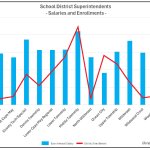To access the Herald’s local coronavirus/COVID-19 coverage, click here.
CAPE MAY – Gov. Phil Murphy announced funding for a COVID-19 Relief Grant Program for businesses in the Neighborhood Preservation Program (NPP) area of Cape May.
According to a release, the area is bounded by Washington Street to the east, Ocean Street to the south, Broad Street and Lafayette Street to the west, and Queen Street to the north.
The grant provides $88,000 for grants to small businesses and non-profits in the designated area. There at least 56 businesses located in the Neighborhood Preservation Area.
City Manager Jerry Inderwies stated, “This is the second grant that the city has secured for this important neighborhood. We appreciate the governor’s support of the Lafayette/Franklin Street neighborhood.”
“It is without a question that small businesses within our communities are still suffering a financial blow due to the COVID-19 pandemic. We are excited to announce these grant funds, which will serve as a lifeline to help them maintain day-to-day business operations,” stated Lt. Gov. Sheila Oliver, who serves as DCA commissioner. “DCA will continue to work collaboratively with our state partners, the New Jersey Housing and Mortgage Finance Agency, the New Jersey Redevelopment Authority, and the New Jersey Economic Development Authority to create innovative programs and invest in small businesses and communities as we continue to rebuild the state’s economy.”
The city engaged Rutala Associates to secure this grant and design an application process to expedite the availability of these funds for businesses and nonprofits. Applications are being mailed to all businesses this week, and they are due by Oct. 30. Interested business owners can obtain a grant application by contacting the city manager’s office, at (609) 884-9537.
The NPP COVID-19 Relief Program provides grant funding to municipalities, with NPP plans for eligible COVID-19 response activities. Funds are only allocated to municipalities with current approved NPP Implementation Plans. Eligible business uses include:
- Commercial mortgage, rent, and other bills (utilities, accounts payable).
- Wages for employees whose services are substantially dedicated to mitigating or responding to the COVID19 emergency (excluding bonuses other than hazard pay and overtime).
- Resources to get the business established online (for example, a business needed to revamp a website to make delivery available to customers).
- Perishable inventory that was lost due to an interruption of business.
- Procurement of masks, gloves, and other personal protective equipment for business owners, staff, and customers.
- Shield guards for businesses.
- Procurement of hand sanitizer and sanitizing wipes.
- Social distancing signage and decals.
- Procurement of tables, chairs, and other furniture for outdoor dining.
- COVID-19 educational materials, activities, and events aimed at businesses.
All funds received must be fully expended by Dec. 30. Any funds not expended by that date or expected to be expended by that date must be returned by Dec. 15 for distribution back to the U.S. Treasury.
Earlier this year, the city secured a $125,000 grant for improvements to the Tubman House, Smith House, and the Allen AME Church from the Neighborhood Preservation Program.
The city has made a concerted effort to improve the Lafayette/Franklin Street neighborhood. In addition to the Neighborhood Preservation Program grants, the city was awarded a $500,000 grant from the National Park Service African American Civil Rights Grant Program, for the Franklin Street School and several grants for renovations of Lafayette Street Park.
The neighborhood was the heart of a thriving African American community in the city. In the 1960s, when much of Cape May had fallen into disrepair, urban renewal funds were used to raze many of the buildings belonging to the African American community. Nevertheless, some key elements of the old neighborhood remain.
Adjacent to the Franklin Street School is the Macedonia Baptist Church, and a once-abandoned building that is now the Harriet Tubman Museum. Coincidentally, the Tubman Museum sits on the corner that was a nexus of abolitionist activity and discussion.
Across the street is the 1846 Stephen Smith House, a freed slave who amassed wealth as a Philadelphia industrialist. Smith founded the local African American Episcopal (AME) Church, which was damaged by fire, but is now considered part of the neighborhood rebirth.
All funds received must be fully expended by grantees and their subrecipients by Dec. 30. Any funds not expended by that date or expected to be expended by that date must be returned to DCA by Dec. 15 for distribution back to the U.S. Treasury.
A second program is available for small businesses in Cape May and throughout the state. The NJEDA is accepting applications for restaurants and small businesses. This grant provides short term, immediate payroll and working capital support to businesses that have been negatively impacted by COVID-19.
Business owners need to register for this program between Oct. 19-27. For more information on the NJEDA Small Business Emergency Assistance Grant Program, visit the EDA’s web site, at https://faq.business.nj.gov/en/articles/3835237-what-is-the-status-of-the-njeda-small-business-emergency-assistance-grant-program.







